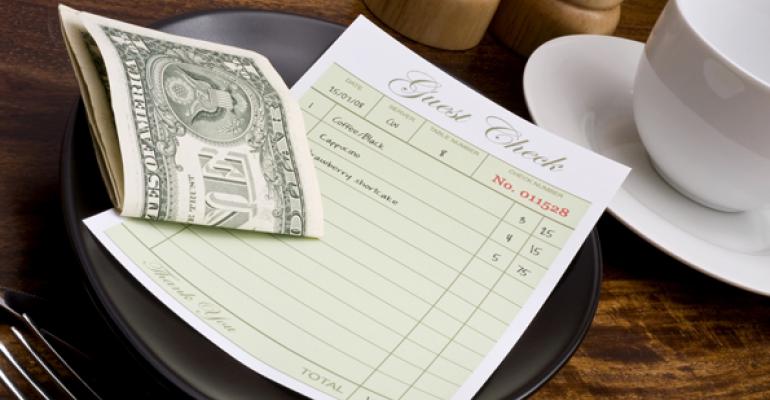Restaurant owners and execs already facing backlash after another round of fast-food worker strikes over low wages, now have to answer to a story from Slate, titled “The Outrageous Restaurant Industry Practice That’s Surprisingly Common—and Not Always Illegal.”
It details the story of a server in New York City who lost her job after refusing to pick up the tab for a table of customers who dined and ditched. Her story also shows how—and how quickly—a story can go viral. The angry and suddenly jobless server in New York publicly complained on Reddit about the people who stiffed her in late November, gossip blog Gawker picked up the story days later and last week, Slate followed with an in-depth look at how the restaurant industry handles the dine and dash.
The common practice, according to Suzanne Parratt and others quoted in the Slate story, is for restaurants to hold the server responsible for the unpaid check, with their wages or tips withheld to cover the loss.
“It was repeatedly drilled into our minds that if a customer were to ever dash on a check, that the server is responsible for the tab,” Parratt was quoted as saying in a Gothamist story, “This is not uncommon in the restaurant industry, but in my many years of experience I've never actually seen it practiced.”
The story from Slate raises a slew of issues restaurant managers and owners should be aware of, chiefly whether the practice of reducing employees’ wages for something like this is even legal. The answer, it seems, varies by state and interpretation. Judging by the response to her original post on Reddit, the public (i.e., your customers) is unanimous in its distaste for the practice. Safety is also a concern, Slate notes, as several servers through the years have been harmed while chasing and confronting customers who didn’t pay.
How do you handle diners who dash? Answer our poll question here.





